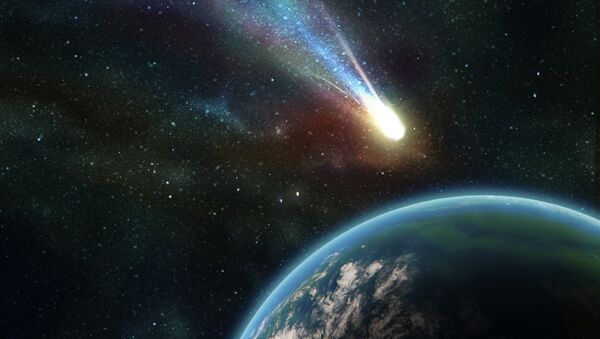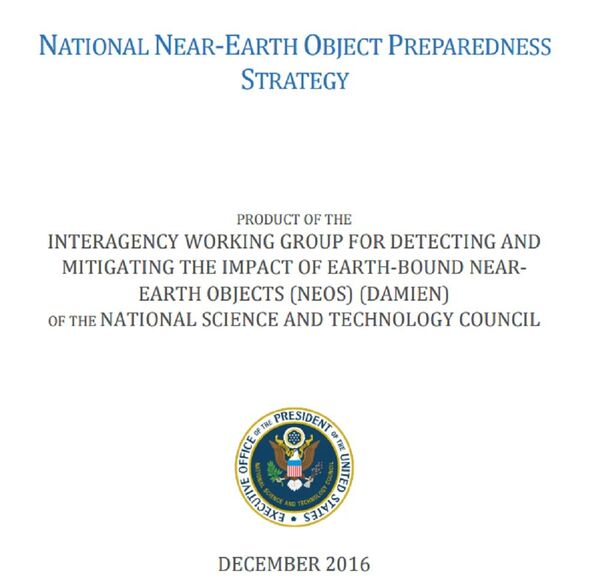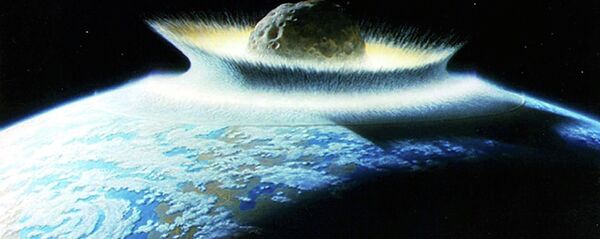The report was written by the Interagency Working Group (IWG) for Detecting and Mitigating the Impact of Earth-bound Near-Earth Objects (DAMIEN). The document's purpose is to "seek to improve our Nation's preparedness to address the hazard of near-Earth object (NEO) impacts by enhancing the integration of existing national and international assets and adding important capabilities that are currently lacking."
It outlined seven strategic goals, including to improve the detection and characterization of NEO's, to improve modeling and predictions of their behavior, to develop methods to deflect and disturb them, to develop emergency procedures in an impact scenario, to establish impact response and recovery procedures, to leverage and support international cooperation in the event of a potential NEO impact, as well as to coordinate communications of related US government agencies and establish a series of procedures if a potential NEO impact is detected.
The report comes in the wake of December 2016 comments from NASA senior scientist Joseph Nuth saying there is "not a hell of a lot we can do about" an asteroid strike. Nuth claimed that if a NEO of significant size is found to be on a collision course with Earth, there would not be ample time to construct a deflection device.
In August 2015, NASA published a report saying that all known Potentially Hazardous Asteroids have a "less than a 0.01% chance of impacting Earth in the next 100 years." However, it is always possible that a previously undetected "killer asteroid" could appear. The B612 Foundation, a NEO-hunting nonprofit, says that there are "1 million smaller asteroids that might only wipe out a city or perhaps collapse the world economy" that NASA has not identified.
The report identifies potential NEO impacts as a low-probability, high consequence hazard that "[poses] a significant and complex challenge." Even fairly small asteroids, such as the Chelyabinsk meteorite that burst over Russia in 2013, can cause enormous amounts of damage. A large one, such as the Chicxulub meteor that struck Earth some 66 million years ago, could kill most life on the planet's surface.




